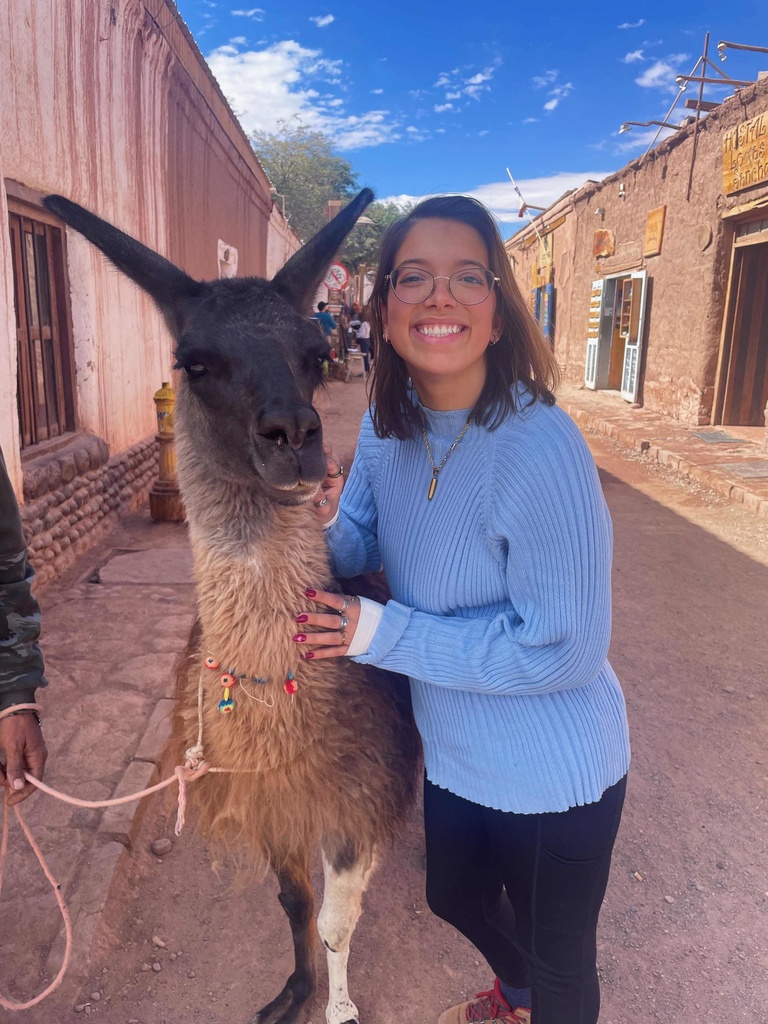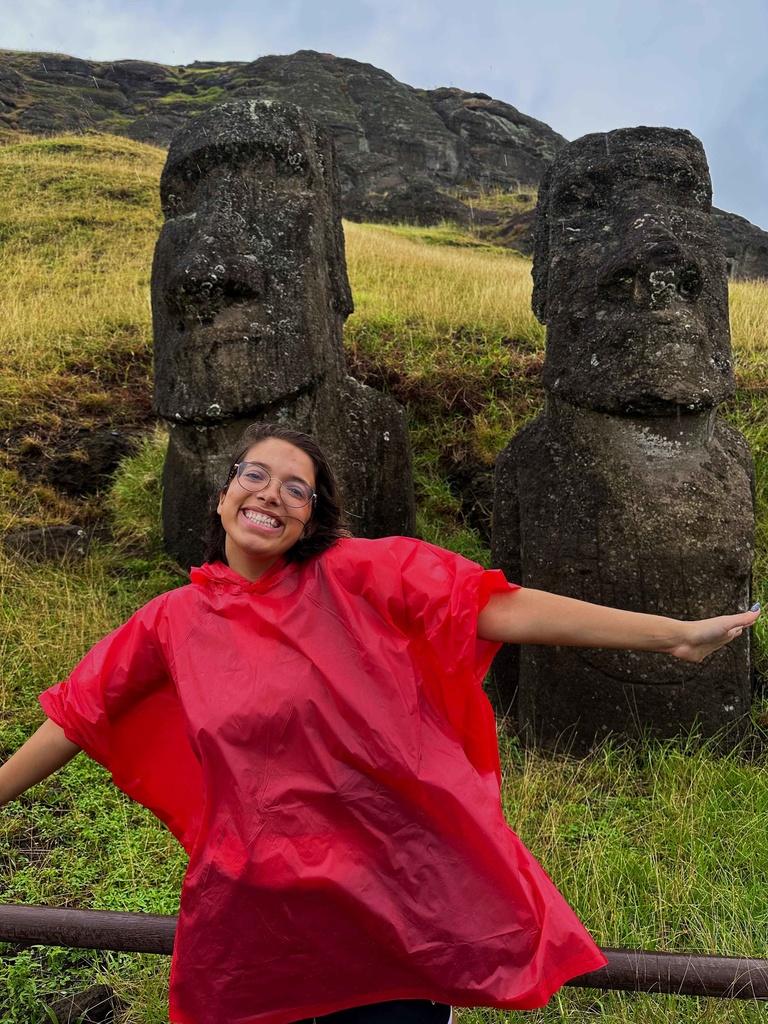
I’ve known since I was in fifth grade and my oldest sister hosted a Mexican exchange student to stay with our family that, someday, I wanted to study abroad and experience the life and culture of a different country, so my hopes for Chile were, as you might expect, kind of high. Luckily, it didn’t disappoint.
Chile taught me many things, like all the different ways you can eat bread, how to flag down buses that don’t believe in a pedestrian’s right of way, and the beauty of chocolate-covered-strawberry salesmen on the beach, but possibly most importantly, it offered me a comfort in my own skin that I hadn’t realized I was lacking in the U.S.
I’m a born and raised Iowan, which is great, don’t get me wrong! I respect saying ope and bleeding black and gold as much as anyone, but our state is, according to the latest national census, 89.8% white, which made growing up biracial—half Hispanic and half white—an isolating experience. When my family walked into church, heads turned, and no one else at school ever showed up with a container of beans and rice for lunch, which the other kids let me know. So, sitting in my first day of classes in Valparaíso and having my teachers take my last name in stride was kind of the best thing ever.
No one looked at me like I was the odd one out in Chile, no matter what part of the country I was in, and as far as cultural immersion goes, that’s a pretty helpful way to go about it. Combined with the fact that Chileans are incredibly friendly people, I couldn’t have asked for a better experience. I loved being part of the crowd, and even when people realized Spanish wasn’t my first language, they were patient and willing to explain what I didn’t understand—which was kind of a lot, because the Chilean accent and vernacular were definitely not what I was taught in school.
More than language, though, Chile taught me confidence—in myself, in my resources, and in my ability to, ultimately, wing it. During the course of my semester abroad, I planned five trips to various parts of Chile and other South American countries. While I didn’t fly solo for all of those, I traveled independently often enough that I learned to stand on my own in a way that I’d never been given the opportunity to in the states. Possibly the best part of traveling, too, is that you have the chance to meet amazing people from different corners of the world, like the man I met from Rapa Nui (Easter Island) who watched the island’s indigenous culture outlast brutal attempts at forced assimilation—or the Peruvian girl exactly my age who was part of a co-op of master weavers providing textiles to the Sacred Valley. At Iowa in my studies in the College of Education, we talk about the danger of a single story, and I’ll never forget how lucky I am to know theirs, and see a part of history I never would’ve otherwise.
Studying abroad brought me to Chile, and Chile cracked the world open for me in ways I’d been dreaming of for a decade. Ultimately, I wouldn’t have had the experience I did in Chile without the parts of my identity that made me feel othered in the U.S. for a long time. So, needless to say, if I ever get the chance to go back, it’ll be a sí, po from me.
Isabella Rivera (world language education and Spanish), a Diversity Ambassador Scholarship recipient (now the Global Access Ambassador Scholarship), participated in ISEP Direct: Pontificia Universidad Católica de Valparaiso, Chile in spring 2023.
The Global Access Ambassador Scholarship (formerly Diversity Ambassador) program provides awards to study abroad for a summer, semester, or academic year.The scholarships are intended to support students who study abroad with the intent to serve as Global Access Ambassadors upon return to the UI campus.Upon completion of the study abroad program and return to UI, award recipients are asked to submit a photo and an open letter to prospective students or suggest an alternate means of sharing with prospective students.
The opinions and views expressed by ambassadors are solely those of the students and do not reflect or represent the views of International Programs or the University of Iowa.

